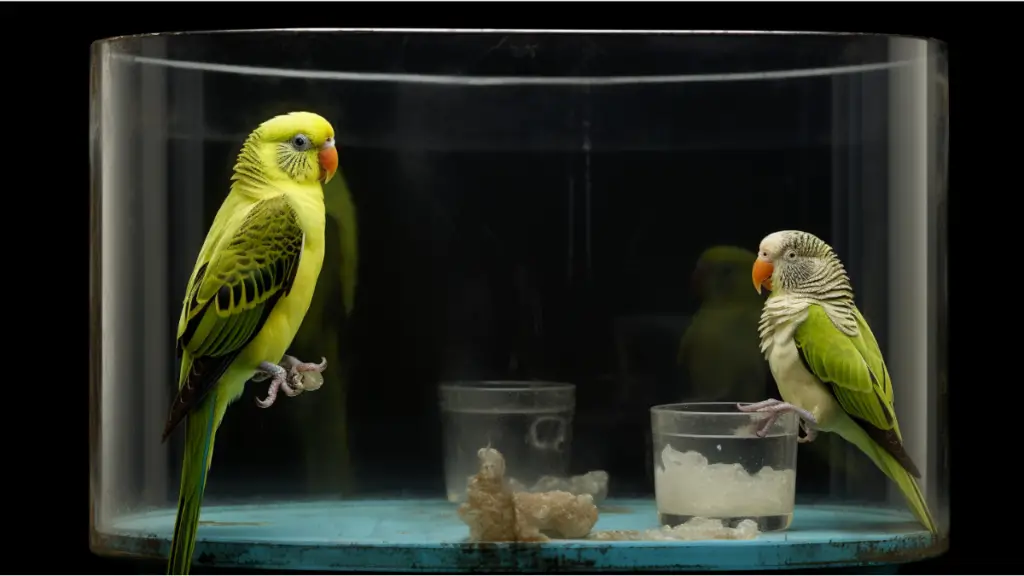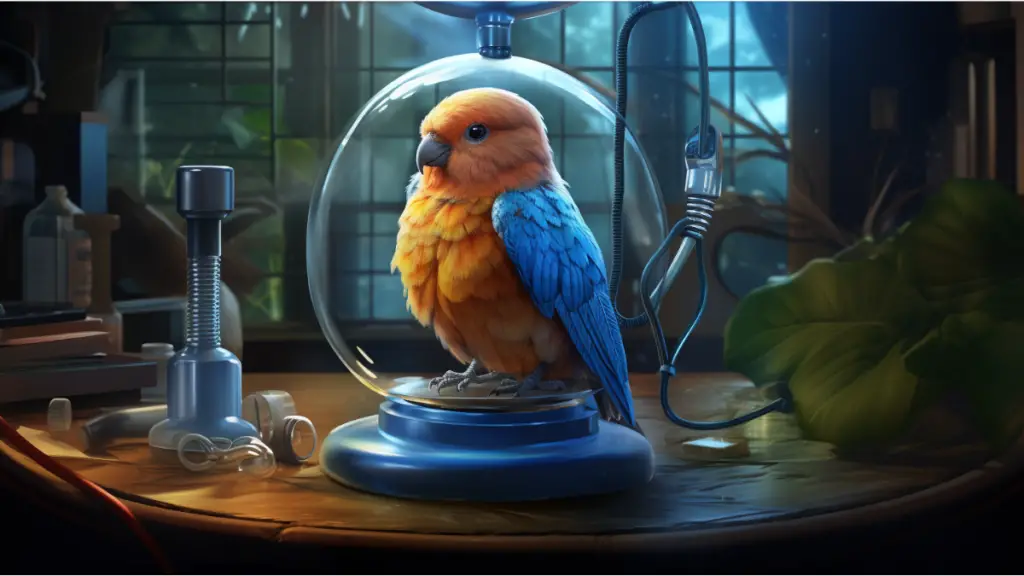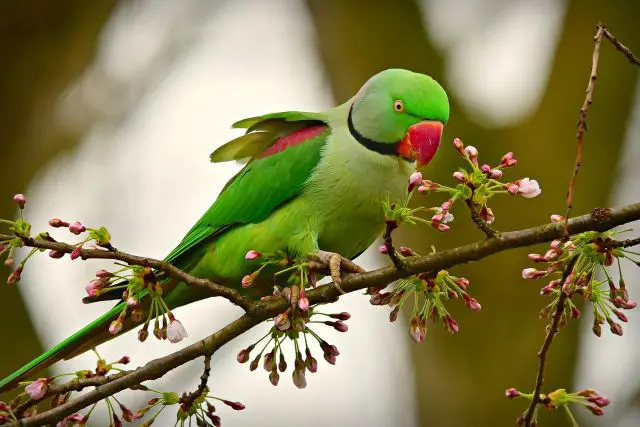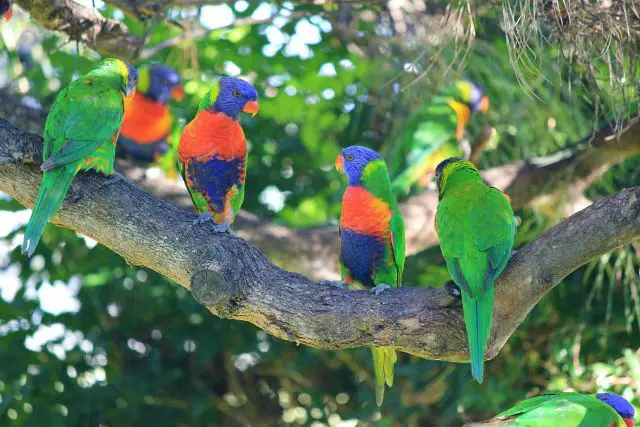You’re a proud bird owner; naturally, you want what’s best for your feathered friends. But are you aware of the importance of quarantining new birds? Even if they seem perfectly healthy, they could be carrying diseases, endangering your existing flock.
Quarantining isn’t just a precaution, it’s a necessity that protects your birds’ health and prevents disease outbreaks. It may seem tedious, but taking the time to let your new birds settle, getting them thoroughly checked, and keeping track of their medical records is a small price for their well-being.
If introducing more birds during quarantine, remember you’ll need to start the process again. So, let’s dive into why quarantine matters, how to do it right, and how it can keep your flock happy and healthy. Because at the end of the day, you’re not just a pet owner, you’re a caretaker, committed to serving and protecting your pets.
- Key Takeaways
- Understanding Quarantine Necessity
- Quarantine Duration and Handling
- Medical Testing and Records
- Preventing Disease Outbreaks
- Frequently Asked Questions
- How can I keep my bird comfortable during the quarantine period?
- What specific signs or symptoms should I look for in my new bird during quarantine?
- What should I do if my bird appears excessively stressed or agitated during quarantine?
- Are there any specific species of birds that require a different quarantine process?
- How can I effectively communicate with my vet about my bird's health during quarantine?
- Conclusion
Key Takeaways
- Quarantining birds is important to reduce the chance of introducing new diseases to an existing flock.
- Even healthy-looking birds can carry diseases, so quarantine should never be skipped.
- The duration of quarantine allows new birds to settle down and adjust to their new environment, minimizing stress and potential health issues.
- Complete blood analysis and diagnostic tests are crucial in detecting diseases, and post-mortem examination can help identify potential risks to other birds.

Understanding Quarantine Necessity
Understanding the necessity of quarantine for pet birds is crucial for preventing the spread of diseases and ensuring the overall health of your flock.
The benefits of bird socialization are countless, but it’s vital to remember that introducing a new bird without proper quarantine can put your entire flock at risk.
The quarantine process, though time-consuming, is a sacrifice you’ll need to make for the well-being of your feathered friends. This process also reduces the impact of stress on bird health, as moving to a new environment can be quite stressful for them. It gives them time to adjust, relax, and become familiar with their new home.
By embracing these guidelines, you’re protecting your pets and serving as an example of responsible bird ownership.

Quarantine Duration and Handling
You’ll need to give your new feathered friends three days to settle into their new environment before you start handling them. This adjustment period is crucial for their well-being. The stress of moving can be overwhelming, so allowing them time to get used to the new sights and sounds is important. Remember, their health depends on it.
Leverage relaxation techniques to help your birds adjust. Quiet, soothing sounds, dimmed lights, and gentle movements can help them feel more at ease.
Post-quarantine integration should be done slowly and carefully. The table below provides a simple outline of a suitable approach:
| Day | Activity | Goal |
|---|---|---|
| 1-3 | Observation | Allow settling |
| 4-7 | Minimal interaction | Foster familiarity |
| 8+ | Gradual handling | Encourage trust |
Following these steps, you’re serving your birds well, promoting their health and happiness.
Medical Testing and Records
Keeping your bird’s medical records is crucial to managing its well-being. These records can provide a wealth of information that’s invaluable when it comes to preventative measures and disease management.
- Medical records facilitate faster diagnosis and treatment, potentially saving your bird’s life.
- They provide a history of your bird’s health, assisting in monitoring changes over time.
- They’re essential when your bird may become a disease carrier, helping protect the rest of your flock.
Medical testing accuracy is key during quarantine. Even if your bird appears healthy, tests can reveal hidden diseases. Sadly, if your bird passes away during quarantine, a post-mortem examination is beneficial. It helps determine the cause of death and may provide insights to protect your remaining birds.

Preventing Disease Outbreaks
To minimize the risk of a devastating disease outbreak in your flock, following a strict quarantine process for any new birds is crucial. Quarantining not only protects your birds from potential viral and bacterial infections, but it also benefits bird bonding.
It gives your new feathered friends time to settle in, become familiar with their new environment, and gradually get to know the existing members of your flock.
However, implementing bird quarantine can be challenging. It’s a time-consuming process that requires dedication, patience, and strict adherence to guidelines. But remember, you’re serving your feathered community by protecting them from potential health risks.
Despite the inconvenience, the peace of mind that comes with knowing you’ve done your best to prevent disease outbreaks makes it all worthwhile.
Frequently Asked Questions

Conclusion
So, it’s clear that quarantining your pet birds is not just vital, it’s non-negotiable. The process may seem tedious, but protecting your feathered friends is worth the effort.
By observing quarantine rules, conducting medical tests, and maintaining records, you’re preventing disease outbreaks.
Remember, if a new bird arrives, restart the process. Your commitment to the health and happiness of your bird family is invaluable.
